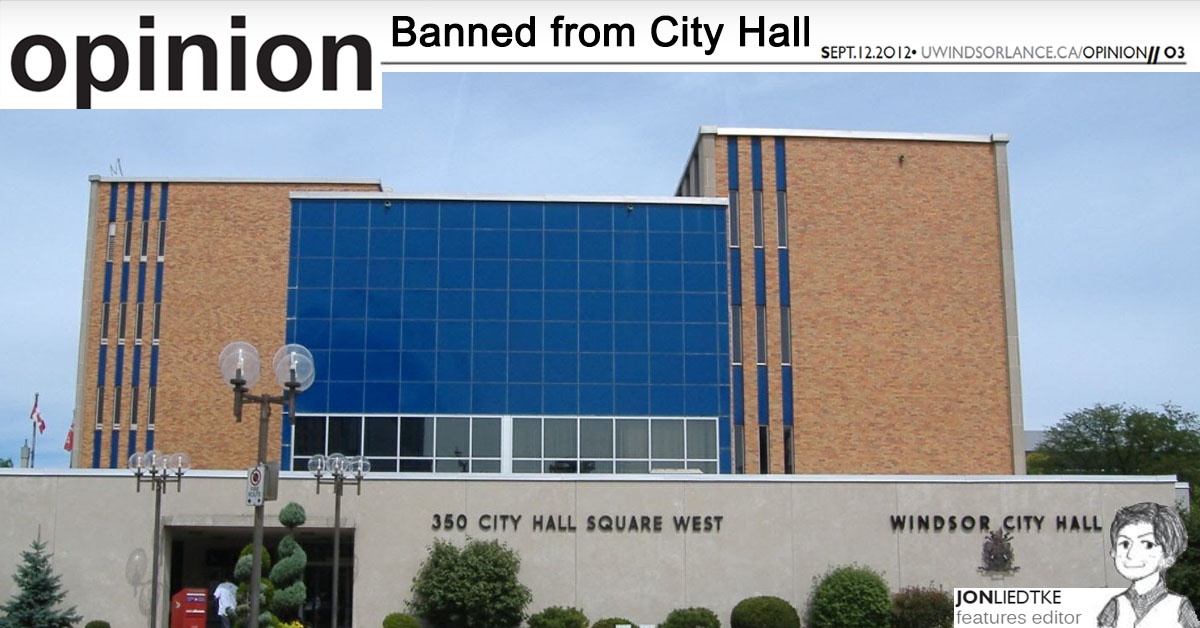UWindsor Lance
Issue 11, Volume 85
Sept. 12, 2012
Jon Liedtke
It’s been revealed that 64 residents are currently barred from entering both city hall and the adjacent 400 building.
One can only surmise the reasons why these individuals are barred from either properties. Based on media reports, it would seem that city administrators view these individuals as at least a nuisance and, at most, as a serious threat to the safety and well being of the workplace.
As with most controversial cases, the truth probably lies somewhere in the middle; in this case, most likely at the intersection of nuisance and harassment.
But what of the motivations for those who have been banned? For at least two of them, they were active participants in Occupy Windsor and vocal opponents of Coun. Al Maghneih and Mayor Eddie Francis, respectively. To generalize, both of these men believe that at the root of our municipal political system there is corruption, and they don’t intend to sit idly by while the rest of the community is being complacent.
While city hall itself serves as a hub for municipal administration, the 400 building houses numerous social services which many residents may require, such as: employment and training services; social services department client intake services; Ontario Works; and Service Ontario.
Thus, a poignant question arises: How do we balance dissent in a democratic society and to what limits should it be allowed to go?
Dissent is essential in a democracy for breeding debate and rigorous discourse. Issues cannot be decided by one party and, as such, shining a light onto issues and allowing oneself to view situations not only through a rose coloured lens can indeed provide insight.
Banishment in the 21st century doesn’t work. It falls short of achieving its purported goals (to limit the ability of the banned party from participating in affairs). With the help of the Internet, social media, and a few activists, banishment achieves the opposite of its goals.
What is intended to limit opposition and stifle debate has quickly turned into a rigorous debate at the municipal level as to whether or not banishments were an appropriate course of action.
At the end of the day, when banishment appears to be the only effective tool to be employed by a municipality, something has truly gone awry.
We all live within this community. It is each and every resident’s duty and obligation to strive to make Windsor a better community, day in and day out. Discourse, Debate and Dissent: the three essential Ds for democracy to function.
Banned from City Hall
Issue 11, Volume 85
Sept. 12, 2012
Jon Liedtke
Page 3
Jon Liedtke was the Features and Opinions Editor, Advertising Manager and Deficit Consultant at the UWindsor Lance.




Leave a Reply